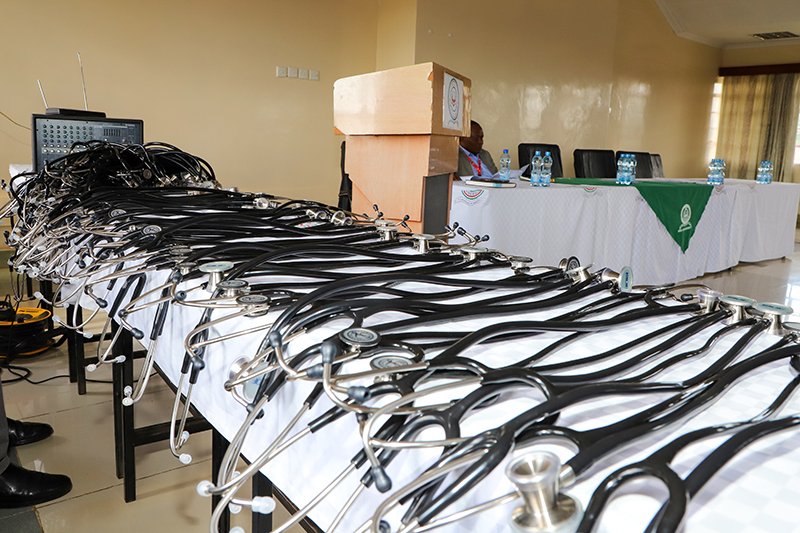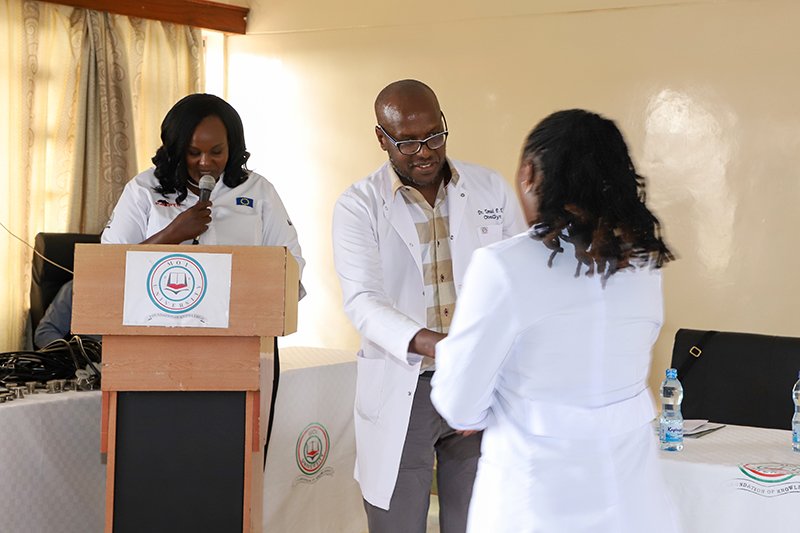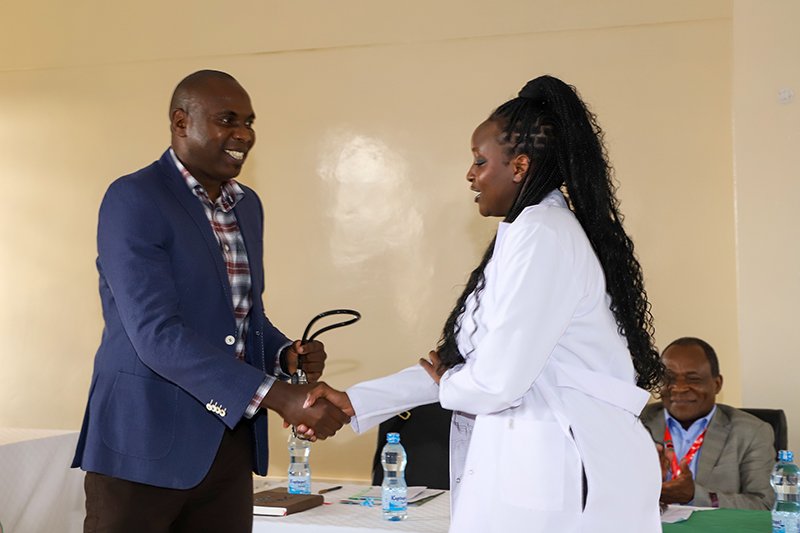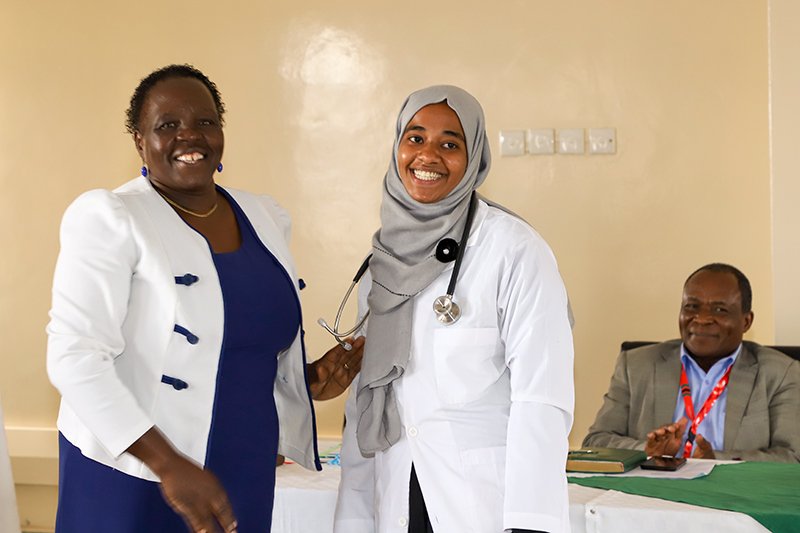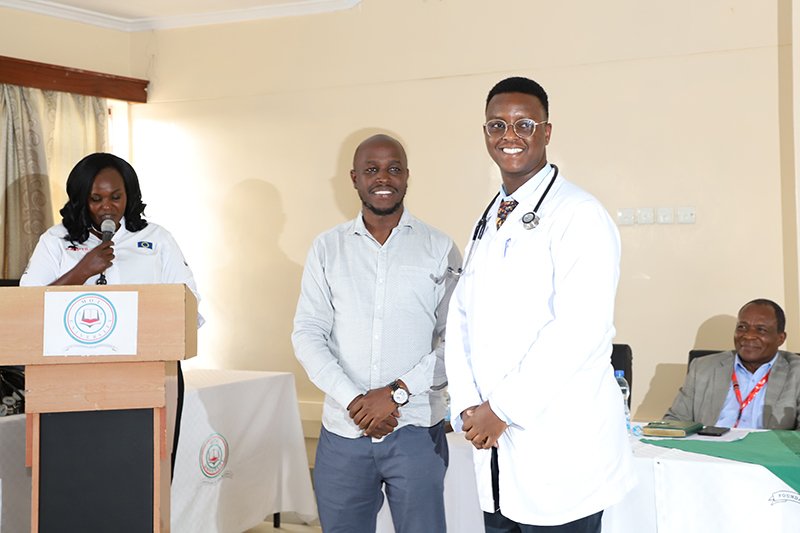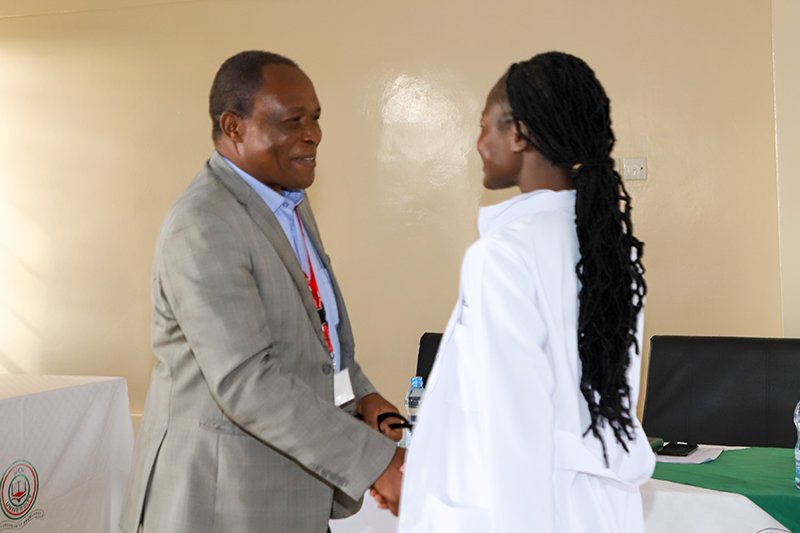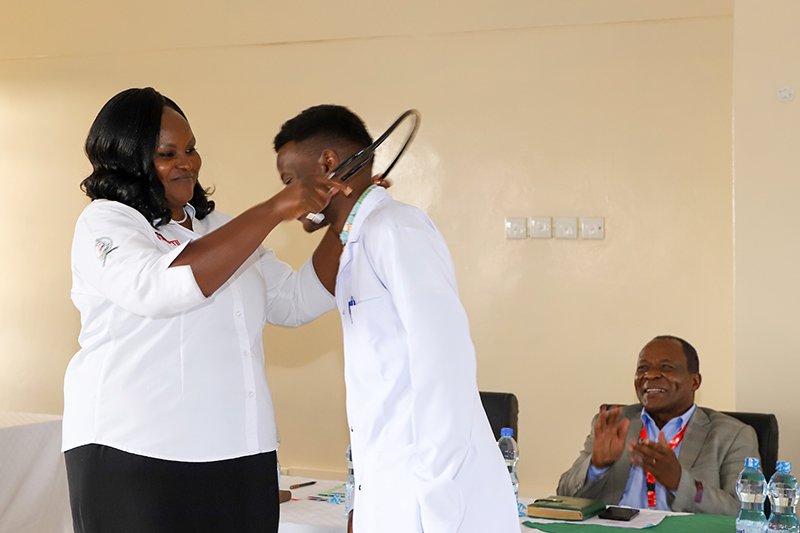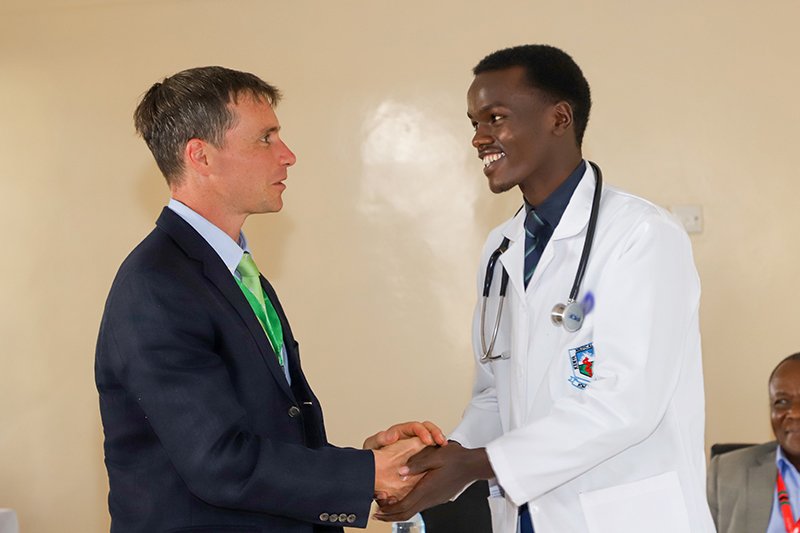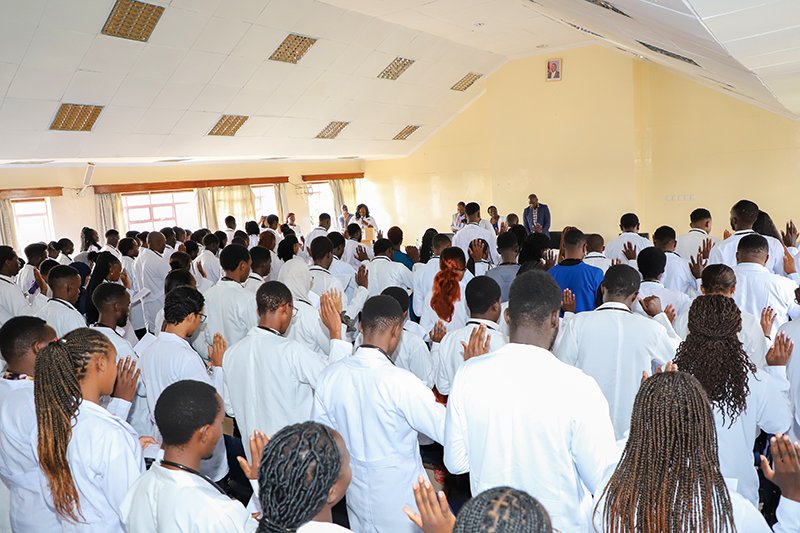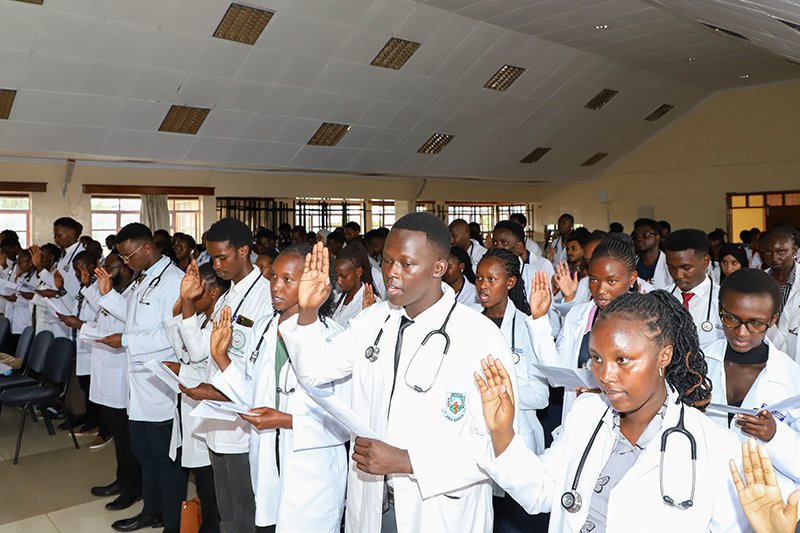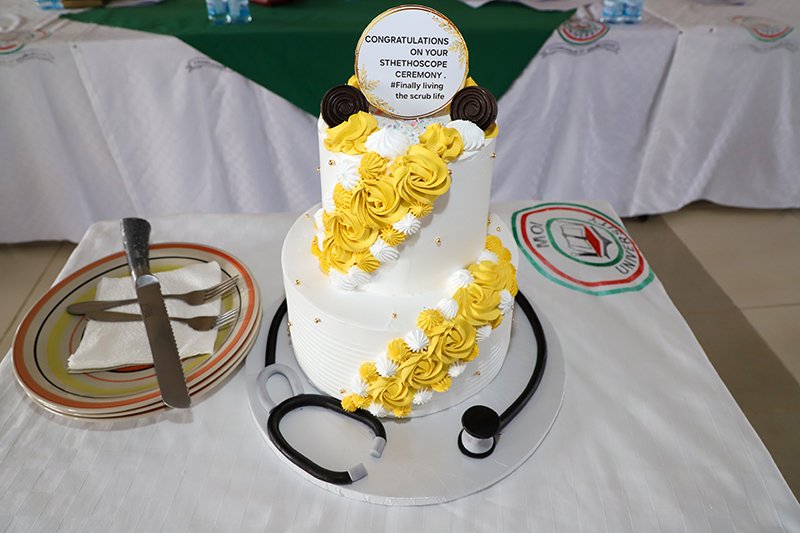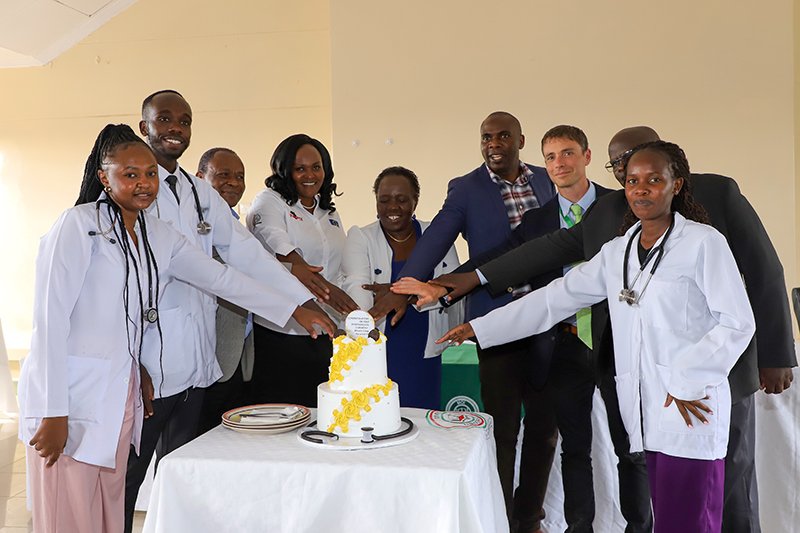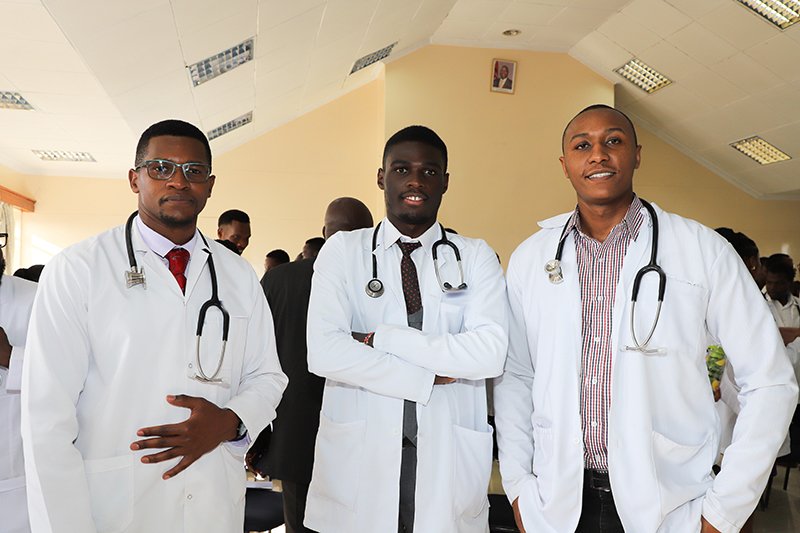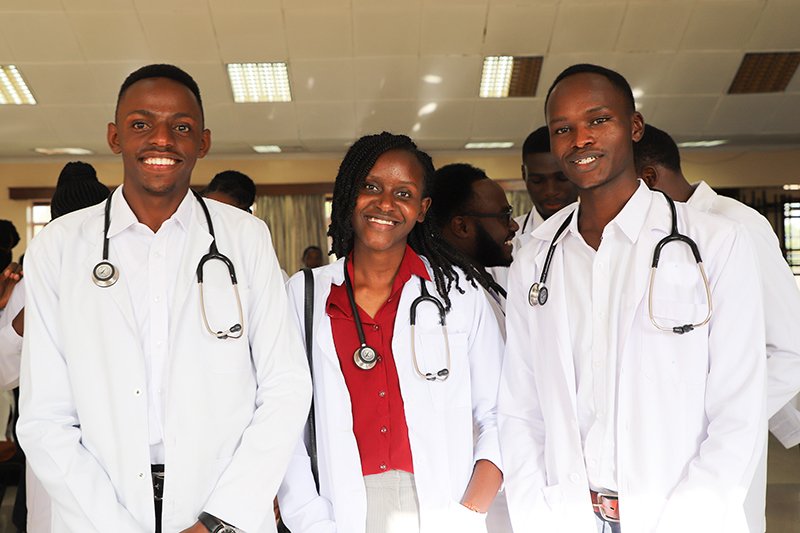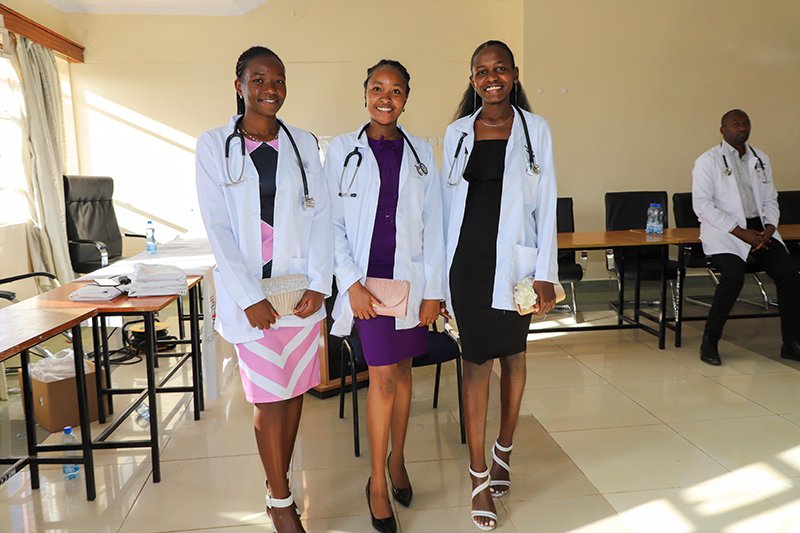Donor Gift Provides Stethoscopes for Moi Medical Students
As has been the tradition for decades, members of the incoming 4th-year class of Moi University School of Medicine (MUSOM) receive a stethoscope gift as they transition to start their clinical years of training. The ceremony is facilitated by a donation from Dr. Angenieta Biegel, who began gifting a stethoscope to every incoming fourth-year student in the mid-1990s and established a fund to continue the donation after her death in 2008.
“We stand here today at the threshold of our clinical years, a milestone that seemed distant, but is now a vivid reality. As we don our stethoscopes and step into the wards, we carry these lessons with us. As we begin our clinical years, may we continue to learn, heal, and make a difference in the lives we touch.””
The excited students were eager for the transition, and the class representative, Gwen Cherop, gave a moving speech, appreciating the efforts and past challenges they had gone through while embracing the new challenges. "To our lecturers, thank you for your unwavering dedication. Your wisdom has not just filled our minds, but has also inspired our hearts. To the administrative staff, our heartfelt thanks for the seamless support and the countless hours you've invested in our success. To our families and friends, your encouragement has been the wind beneath our wings,” she said.
“We stand here today at the threshold of our clinical years, a milestone that seemed distant, but is now a vivid reality. As we don our stethoscopes and step into the wards, we carry these lessons with us. As we begin our clinical years, may we continue to learn, heal, and make a difference in the lives we touch,” Cherop continued.
Dean Julia Songok, Moi University School of Medicine
The stethoscope ceremony in March was graced by Professor Dinah Chelagat, dean of the Moi University School of Nursing, representing the principal of the Moi University College of Health Sciences; Dr. Julia Songok, dean of MUSOM; Professor Patrick Kerre, dean of the School of Public Health; Professor Arthur Kwena, associate dean in MUSOM; Dr. Zach Gitlin, AMPATH pediatric team leader; Dr. Philip K. Tonui, chair of reproductive health at MUSOM, Dr. Dan Kipsang Ndiwa, chair human anatomy at MUSOM; Rev. Saul Tanui, chaplain; and other staff and faculty from Moi University College of Health Sciences. The event was also attended by happy and proud friends of the medical students.
Dean Dinah Chelagat, Moi University School of Nursing
Addressing the 4th year students as the chief guests of the ceremony, Dean Songok emphasized the need for them to be professional and be ready to learn every day, "You will do great, but you will also make mistakes, so when in doubt consult so that you will keep your patients safe all the time. Be open-minded and ready to work with the multidisciplinary teams, remembering to be always servant leaders." Dr. Songok also insisted that the students care for themselves even as they served their patients.
Emphasizing the need for self-care, Prof. Chelagat reminded the students that it was their responsibility to be aware of the dangers of working in a hospital environment: "It's up to you to take care of yourself and have all the caution for infection prevention to be safe while practicing. A know-it-all attitude will deter results. Therefore, you need to go in with the right knowledge and a great attitude. Remember to be humane to your patients at all times."
Dr. Gitlin honored the donor by reading the history of Dr. Biegel, who completed her medical residency at Indiana University. Dr. Biegel lost her father during World War II and was raised by her physician grandfather who gave her a stethoscope as a gift. She has continued to pay kindness to students in Kenya each year. This recognition of her generosity was appreciated dearly by the students and the faculty.
Luke Maboke, another class rep, describes the stethoscope’s importance in clinical medicine. "On our first ward round a few days ago, I borrowed a stethoscope from a friend. As we rounded the wards, the consultant wanted a student to volunteer to listen to a patient's chest (for abnormal heart sounds) and help with a diagnosis for the patient. Despite having the stethoscope, then suddenly it started to burn my shoulders as I was not confident I would get the correct diagnosis,” he recalled. “I clearly remember the consultant's words that it was not enough to have a stethoscope, but there was a need to understand the language of the stethoscope. Those were wise words, and I hope we will learn and become outstanding medics soon.”
"For me, the stethoscope is a medical tool for detecting sounds to detect issues like asthma, heart disease, and obstructions,” said student Samuel Kirugi. “The stethoscope ceremony is a time to interact, have fun, and show the progress we have made in medical school. It is also an orientation and welcome to the clinical years ahead, which is a new and exciting time for us."
Makobe added, “For me, the stethoscope is a symbol of medical practice. This ceremony has been held for several years at the start of the fourth year, which is a transition between our junior years and our senior years, which are the clinical years. There is a culture in the College of Health Sciences where, during this transition, we call each other doctors when we have not graduated as a sign of excitement and confidence. We thank the organizers, the donors, and AMPATH for facilitating this ceremony.”

